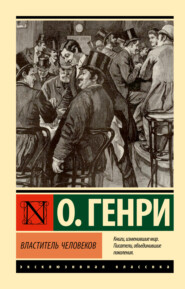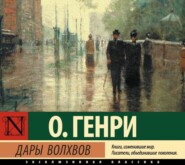По всем вопросам обращайтесь на: info@litportal.ru
(©) 2003-2025.
✖
Options
Настройки чтения
Размер шрифта
Высота строк
Поля
"Extend the time," said Hetty. "This is a big town. Think of how many girls he might have to see soaked in water with their hair down before he would recognize you. The stew's getting on fine – but oh, for an onion! I'd even use a piece of garlic if I had it."
The beef and potatoes bubbled merrily, exhaling a mouth-watering savor that yet lacked something, leaving a hunger on the palate, a haunting, wistful desire for some lost and needful ingredient.
"I came near drowning in that awful river," said Cecilia, shuddering.
"It ought to have more water in it," said Hetty; "the stew, I mean. I'll go get some at the sink."
"It smells good," said the artist.
"That nasty old North River?" objected Hetty. "It smells to me like soap factories and wet setter-dogs – oh, you mean the stew. Well, I wish we had an onion for it. Did he look like he had money?"
"First, he looked kind," said Cecilia. "I'm sure he was rich; but that matters so little. When he drew out his bill-folder to pay the cab-man you couldn't help seeing hundreds and thousands of dollars in it. And I looked over the cab doors and saw him leave the ferry station in a motor-car; and the chauffeur gave him his bearskin to put on, for he was sopping wet. And it was only three days ago."
"What a fool!" said Hetty, shortly.
"Oh, the chauffeur wasn't wet," breathed Cecilia. "And he drove the car away very nicely."
"I mean you," said Hetty. "For not giving him your address."
"I never give my address to chauffeurs," said Cecilia, haughtily.
"I wish we had one," said Hetty, disconsolately.
"What for?"
"For the stew, of course – oh, I mean an onion."
Hetty took a pitcher and started to the sink at the end of the hall.
A young man came down the stairs from above just as she was opposite the lower step. He was decently dressed, but pale and haggard. His eyes were dull with the stress of some burden of physical or mental woe. In his hand he bore an onion – a pink, smooth, solid, shining onion as large around as a ninety-eight-cent alarm-clock.
Hetty stopped. So did the young man. There was something Joan of Arc-ish, Herculean, and Una-ish in the look and pose of the shop-lady – she had cast off the rôles of Job and Little-Red-Riding-Hood. The young man stopped at the foot of the stairs and coughed distractedly. He felt marooned, held up, attacked, assailed, levied upon, sacked, assessed, panhandled, browbeaten, though he knew not why. It was the look in Hetty's eyes that did it. In them he saw the Jolly Roger fly to the masthead and an able seaman with a dirk between his teeth scurry up the ratlines and nail it there. But as yet he did not know that the cargo he carried was the thing that had caused him to be so nearly blown out of the water without even a parley.
"Beg your pardon," said Hetty, as sweetly as her dilute acetic acid tones permitted, "but did you find that onion on the stairs? There was a hole in the paper bag; and I've just come out to look for it."
The young man coughed for half a minute. The interval may have given him the courage to defend his own property. Also, he clutched his pungent prize greedily, and, with a show of spirit, faced his grim waylayer.
"No," he said huskily, "I didn't find it on the stairs. It was given to me by Jack Bevens, on the top floor. If you don't believe it, ask him. I'll wait until you do."
"I know about Bevens," said Hetty, sourly. "He writes books and things up there for the paper-and-rags man. We can hear the postman guy him all over the house when he brings them thick envelopes back. Say – do you live in the Vallambrosa?"
"I do not," said the young man. "I come to see Bevens sometimes. He's my friend. I live two blocks west."
"What are you going to do with the onion? —begging your pardon," said Hetty.
"I'm going to eat it."
"Raw?"
"Yes: as soon as I get home."
"Haven't you got anything else to eat with it?"
The young man considered briefly.
"No," he confessed; "there's not another scrap of anything in my diggings to eat. I think old Jack is pretty hard up for grub in his shack, too. He hated to give up the onion, but I worried him into parting with it."
"Man," said Hetty, fixing him with her world-sapient eyes, and laying a bony but impressive finger on his sleeve, "you've known trouble, too, haven't you?"
"Lots," said the onion owner, promptly. "But this onion is my own property, honestly come by. If you will excuse me, I must be going."
"Listen," said Hetty, paling a little with anxiety. "Raw onion is a mighty poor diet. And so is a beef-stew without one. Now, if you're Jack Bevens' friend, I guess you're nearly right. There's a little lady – a friend of mine – in my room there at the end of the hall. Both of us are out of luck; and we had just potatoes and meat between us. They're stewing now. But it ain't got any soul. There's something lacking to it. There's certain things in life that are naturally intended to fit and belong together. One is pink cheese-cloth and green roses, and one is ham and eggs, and one is Irish and trouble. And the other one is beef and potatoes with onions. And still another one is people who are up against it and other people in the same fix."
The young man went into a protracted paroxysm of coughing. With one hand he hugged his onion to his bosom.
"No doubt; no doubt," said he, at length. "But, as I said, I must be going, because – "
Hetty clutched his sleeve firmly.
"Don't be a Dago, Little Brother. Don't eat raw onions. Chip it in toward the dinner and line yourself inside with the best stew you ever licked a spoon over. Must two ladies knock a young gentleman down and drag him inside for the honor of dining with 'em? No harm shall befall you, Little Brother. Loosen up and fall into line."
The young man's pale face relaxed into a grin.
"Believe I'll go you," he said, brightening. "If my onion is good as a credential, I'll accept the invitation gladly."
"It's good as that, but better as seasoning," said Hetty. "You come and stand outside the door till I ask my lady friend if she has any objections. And don't run away with that letter of recommendation before I come out."
Hetty went into her room and closed the door. The young man waited outside.
"Cecilia, kid," said the shop-girl, oiling the sharp saw of her voice as well as she could, "there's an onion outside. With a young man attached. I've asked him in to dinner. You ain't going to kick, are you?"
"Oh, dear!" said Cecilia, sitting up and patting her artistic hair. She cast a mournful glance at the ferry-boat poster on the wall.
"Nit," said Hetty. "It ain't him. You're up against real life now. I believe you said your hero friend had money and automobiles. This is a poor skeezicks that's got nothing to eat but an onion. But he's easy-spoken and not a freshy. I imagine he's been a gentleman, he's so low down now. And we need the onion. Shall I bring him in? I'll guarantee his behavior."
"Hetty, dear," sighed Cecilia, "I'm so hungry. What difference does it make whether he's a prince or a burglar? I don't care. Bring him in if he's got anything to eat with him."
Hetty went back into the hall. The onion man was gone. Her heart missed a beat, and a gray look settled over her face except on her nose and cheek-bones. And then the tides of life flowed in again, for she saw him leaning out of the front window at the other end of the hall. She hurried there. He was shouting to some one below. The noise of the street overpowered the sound of her footsteps. She looked down over his shoulder, saw whom he was speaking to, and heard his words. He pulled himself in from the window-sill and saw her standing over him.
Hetty's eyes bored into him like two steel gimlets.
"Don't lie to me," she said, calmly. "What were you going to do with that onion?"
The young man suppressed a cough and faced her resolutely. His manner was that of one who had been bearded sufficiently.
"I was going to eat it," said he, with emphatic slowness; "just as I told you before."
"And you have nothing else to eat at home?"

















